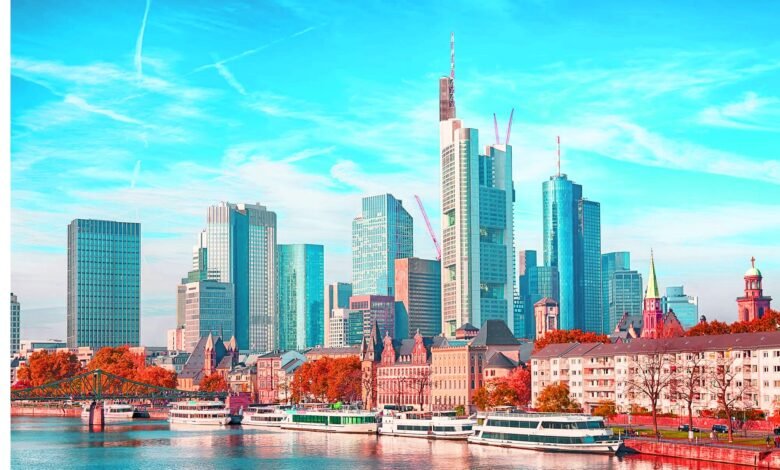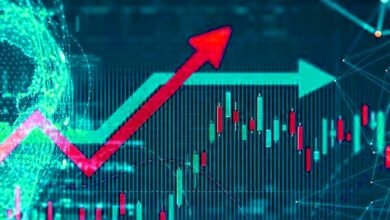
Germany, often hailed as the economic powerhouse of Europe is a nation renowned for its engineering prowess, technological innovation, and robust industrial sector. In this comprehensive exploration, we delve into the intricacies of the German economy, examining its key industries, economic indicators, strengths, challenges, government policies, international trade relations, and future outlook.
Key Industries in Germany
Automotive Industry
The automotive sector stands as a cornerstone of the German economy, boasting iconic brands such as Volkswagen, BMW, and Mercedes-Benz. Renowned for its precision engineering, innovation, and commitment to quality, the German automotive industry not only drives domestic economic growth but also commands a significant presence in international markets.
Machinery and Equipment
Germany’s machinery and equipment sector exemplifies excellence in engineering and technological innovation. From industrial machinery to robotics and automation systems, German companies lead the way in delivering cutting-edge solutions across various industries, cementing the nation’s reputation as a global leader in advanced manufacturing.
Chemicals
The German chemicals industry is characterized by its diversity and global competitiveness. From pharmaceuticals and specialty chemicals to petrochemicals and polymers, Germany’s chemical sector plays a pivotal role in driving innovation, meeting global demand, and contributing to economic growth and stability.
Pharmaceuticals
Germany’s pharmaceutical industry ranks among the world’s most innovative and research-driven sectors. Home to pharmaceutical giants such as Bayer and Merck, the country boasts a robust healthcare infrastructure, stringent regulatory standards, and a commitment to advancing medical science and improving patient outcomes.
Economic Indicators
Germany’s economic performance is gauged through a myriad of indicators that reflect its overall health and vitality. Key metrics such as Gross Domestic Product (GDP) growth, GDP per capita, unemployment rate, and trade balance provide valuable insights into the nation’s economic trajectory and competitiveness on the global stage.
Economic Strengths of Germany
Skilled Workforce
Germany’s greatest asset lies in its highly skilled and educated workforce. Supported by a comprehensive vocational education and training system, German workers are renowned for their technical proficiency, adaptability, and commitment to excellence, driving productivity and innovation across various industries.
Innovation and Research
Germany’s relentless pursuit of innovation and research excellence is evident in its vibrant ecosystem of universities, research institutions, and corporate R&D centers. Collaborative partnerships between academia, industry, and government entities fuel breakthrough discoveries, technological advancements, and the development of cutting-edge products and solutions.
Strong Industrial Base
At the heart of the German economy lies its strong industrial base, encompassing a diverse array of sectors ranging from manufacturing and engineering to technology and logistics. Embracing digitalization, automation, and Industry 4.0 principles, German industries remain at the forefront of global competition, delivering high-quality goods and services to markets around the world.
Read More: IoT Device Management: Tips for Efficient Monitoring and Control
Challenges Facing the German Economy
Aging Population
Germany confronts the challenges posed by an aging population and declining birth rates, resulting in demographic shifts that impact labor supply, pension systems, healthcare expenditures, and overall economic growth. Addressing the needs of an aging society requires innovative solutions, including policies to encourage workforce participation, support for elder care, and investments in healthcare infrastructure.
Digital Transformation
The ongoing digital transformation presents both opportunities and challenges for the German economy. While digital technologies drive efficiency, productivity, and innovation across industries, they also raise concerns related to data privacy, cybersecurity, digital literacy, and the future of work. Navigating the complexities of digitalization requires strategic investments in digital infrastructure, education, and regulatory frameworks that foster innovation while safeguarding consumer rights and data integrity.
Environmental Concerns
Germany’s commitment to environmental sustainability and climate action is reflected in its ambitious targets for reducing carbon emissions, transitioning to renewable energy sources, and promoting eco-friendly practices across sectors. However, achieving these goals entails overcoming various challenges, including the need for substantial investments in renewable energy infrastructure, the phasing out of fossil fuels, and the adoption of sustainable technologies and practices by industries and consumers alike.
Government Policies and Initiatives
The German government plays a proactive role in shaping economic policy, fostering innovation, and addressing societal challenges through a range of initiatives and programs. From industrial policy measures aimed at supporting key industries and fostering competitiveness to energy transition efforts (Energiewende) focused on decarbonization and renewable energy deployment, Germany adopts a multifaceted approach to sustainable growth and development.
International Trade Relations
As a key player in the global economy, Germany maintains extensive trade relations with partners around the world, leveraging its position within the European Union (EU) and its role as a leading exporter of goods and services. Engagements with international trade agreements, such as the Transatlantic Trade and Investment Partnership (TTIP) and bilateral trade agreements with countries like China, underscore Germany’s commitment to free trade, economic cooperation, and global integration.
Future Outlook and Trends
Digitalization and Industry 4.0
Germany’s embrace of digitalization and the principles of Industry 4.0 heralds a new era of innovation, connectivity, and efficiency across industrial sectors. Advancements in areas such as artificial intelligence, the Internet of Things (IoT), and advanced manufacturing technologies are expected to revolutionize production processes, supply chain management, and business models, driving sustained growth and competitiveness in the digital age.
Renewable Energy
The transition towards renewable energy sources represents a cornerstone of Germany’s energy policy, with ambitious targets for expanding renewable capacity, reducing greenhouse gas emissions, and achieving energy independence. Investments in wind, solar, and other renewable technologies, coupled with regulatory incentives and public-private partnerships, position Germany as a leader in the global transition towards a sustainable, low-carbon energy future.
Global Economic Integration
Germany’s commitment to global economic integration remains unwavering, as evidenced by its active participation in multilateral trade agreements, alliances, and international organizations. Despite geopolitical uncertainties and challenges, Germany advocates for open markets, free trade, and cooperation, recognizing the interconnectedness of economies and the shared benefits of fostering economic stability, prosperity, and peace on a global scale.
Read More: 10 Reasons To Try Speech Therapy In 2024
Conclusion
In conclusion, the heart of the German economy beats with a rhythm of innovation, resilience, and global competitiveness. From its renowned automotive industry to its cutting-edge research in pharmaceuticals, Germany embodies the spirit of excellence and efficiency. As it navigates challenges and embraces opportunities in an ever-changing world, Germany remains a shining example of economic strength and dynamism.
FAQs
What role does the automotive industry play in the German economy?
The automotive industry is a major contributor to Germany’s GDP and export revenue, driving innovation and technological advancements.
How is Germany addressing the challenges posed by an aging population?
Germany is implementing various measures such as pension reforms, immigration policies, and healthcare innovations to address the demographic shift.
What are some key initiatives of Germany’s energy transition (Energiewende)?
Energiewende includes investments in renewable energy, energy efficiency measures, and phasing out nuclear power.
How does Germany foster innovation and research in its economy?
Germany promotes collaboration between academia, industry, and government, providing funding and support for research and development initiatives.
What is Germany’s stance on international trade and globalization?
Germany advocates for free trade, participates in international trade agreements, and promotes global economic integration for mutual benefit.










